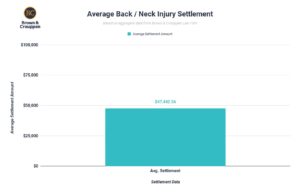THE STATUTE OF LIMITATIONS IS CRITICAL.
A medical malpractice claim must be filed within a certain amount of time, but that time frame is not always obvious. For example, the Missouri medical malpractice Statute of Limitations might begin as soon as the malpractice occurs, or it might not begin until the malpractice is discovered (or should have been discovered.) Further, the amount of time available to file a claim varies from state to state. An experienced medical malpractice lawyer will be able to ascertain whether there is enough time to file a claim.
MISTAKES ARE NOT ALWAYS MALPRACTICE.
Medicine is not, and never has been, an exact science. Providers who do everything correctly will still have patients with negative outcomes. The law does not require that medical providers be miracle workers. Instead, they are held to a medical standard of care.
The standard of care is typically defined as what a reasonably competent and skilled health care professional with a similar background and in the same medical community would have provided under the circumstances.
This means that there is not a single standard of care. Instead, the standard of care will depend on the type of medicine involved and where it took place.
YOU MUST IDENTIFY POTENTIAL DEFENDANTS.
Medical malpractice lawsuits often involve multiple defendants, not just single medical providers. Other defendants can include hospitals, practice groups, clinics, and other entities, not always immediately obvious to laypeople.
YOU MUST FOLLOW AFFIDAVIT AND CAUSATION REQUIREMENTS.
Under both Missouri and Illinois law, a medical malpractice plaintiff must file an affidavit stating that the plaintiff has a medical provider’s written opinion (a “causation letter”) stating:
- that the defendant failed to meet the standard of care, and
- that failure caused the plaintiff’s injury.
This affidavit must be filed with the court at the time of filing suit or shortly thereafter (typically, within 90 days of filing). If a plaintiff fails to meet this requirement, the lawsuit will be dismissed.
Obtaining the causation letter is often the first big, expensive hurdle for a plaintiff to overcome.
- The causation letter must be signed by a legally qualified medical provider. The medical provider chosen for the causation letter cannot be just any random doctor. To be legally qualified, the medical professional
- should still be practicing or only recently retired and
- must practice or have experience in the same medical area as the defendant.
- Causation letters must be in the proper format. Causation letters must contain specific language to survive a legal challenge. Without this language, the case will be dismissed.
- Causation letters are expensive to obtain. Medical providers are reluctant to provide causation letters against other providers in their community. Therefore, plaintiffs usually need to look out of state for a medical expert’s opinion. These experts can provide the critical foundation of a malpractice lawsuit, but they rightly expect to be paid for their time and expertise.
- A review of the relevant medical records and the resulting causation letter will often cost several thousands of dollars, at a minimum, before you can file a lawsuit.
MEDICAL MALPRACTICE LAWSUITS ARE EXPENSIVE TO PURSUE.
It is not unusual for a medical malpractice case to cost upwards of six figures by the time it gets to a jury. The victims of medical negligence rarely have the funds to pay for litigation out of their pocket. However, a medical malpractice law firm has the resources to investigate and pursue your medical malpractice case thoroughly.
If you have been injured by medical negligence, and you want a free, confidential consultation, call toll-free at 1-888-801-9825, or submit your request using our online form.







